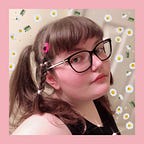What is the Internet?
A response to Chapter 1 of David Weinberger’s “Small Pieces Loosely Joined”
Chapter 1 of David Weinberger’s “Small Pieces Loosely Joined” discusses the development of the internet and the implications it has on individuals through a series of anecdotes set in the late 90’s. While dated, Weinberger’s work does bring to light the intricacies of internet culture that remain relevant today, including new uses of space, time, knowledge, and self, among other variables.
In terms of “space,” and “time,” Weinberger notes the importance of links, which make the internet what it is: a complexly interwoven network of human thought and ideas, expressed through a mechanical medium. He explains that websites take up no physical space, that the landscape is different for everyone and is based on interest rather than contiguity, and that these “locations” can be visited and revisited at any point in time a person wishes to do so. “Knowledge,” Weinberger argues, can be attained very quickly on the internet, just through participation. He also discusses how the internet “self” is completely divided from a person’s pre-existing identity, rendering the physical self irrelevant to the self on the Web. I agree with this point for the most part, though I do believe the divide between physical and virtual self to be more nuanced today than in 2002. While it is possible for a person nowadays to create a persona that leaves the physical self anonymous, it is almost always expected to have the “real” version present on the internet. This occurs most notably through social media, though an online identity can be bent in whichever way a person chooses to showcase their life. As a result, it is now more difficult to tell what is “real” and what is edited, though it is always necessary to have some level of curation involved.
This factor of “real vs. edited,” which Weinberger references in each of his stories, is authenticity, focused on whether the internet’s freedom allows us to embrace it or to hide our true selves further. While a person can completely fake their identity — or, as Weinberger notes, any number of identities — on the internet, the Web is also freeing in that morals are not as highly valued, perfectionism is uncommon, no person needs permission to join, and there is no central entity that keeps the Web organized. As a result, individuals may be more inclined to share their messy selves that they keep hidden from the real world on the internet, where there is less of an expectation for people to express themselves only within confines set forth by societal norms. The internet is a new society with a new culture, ungoverned, with new lines that have been drawn between the private and the public; it is organized chaos with only minor hubs of control, a catalyst for creativity, and a place where individuals can remain alive, even after death.
